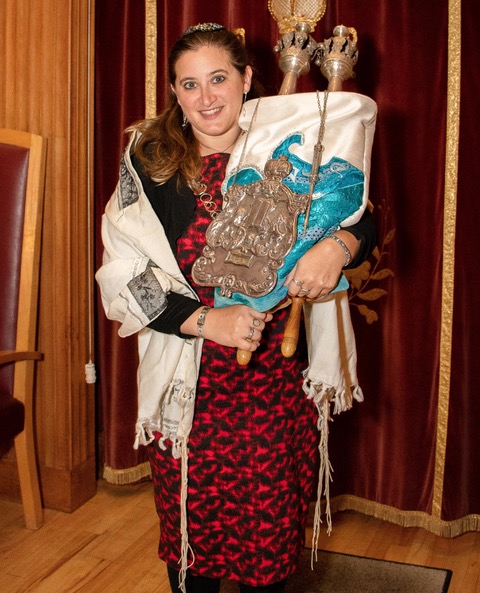By Rabbi Emma Gottlieb, Temple Israel CTPJC
In his book, A Time for Every Purpose: Letters to a Young Jew, renowned Jewish scholar Jonathan Sarna writes, somewhat surprisingly, that the Book of Numbers “knows nothing of Rosh Hashanah”, assigning it to the first day of the seventh month.
This may seem strange, given that Rosh Hashanah literally means ‘the head of the year’ and is commonly understood to be the Jewish New Year, rather than one of four Jewish New Years, which is how it is traditionally understood. Sarna explains that the biblical holiday originally fell in spring, but that, “under the influence of cultures that celebrated the new year in the autumn,” a debate took place among our great sages.
One rabbi taught that the world was created in the month of Tishrei (Autumn in Israel), while another taught that it was created in the month of Nissan (Spring in Israel). Rabbi Arthus Waskow delves deeper into this question in his modern guide to the Jewish holidays, Seasons of Our Joy, providing some thoughts on why Jewish tradition shifted from celebrating in Nissan to celebrating in Tishrei. Rabbi Waskow reminds his readers that the month of Nisan, the first month of the Hebrew calendar, is when the Jewish slaves in Egypt first became a united Jewish people. As the month of the beginning of their freedom, it can be understood as the new year for learning how we can reach toward freedom in the world.
On the other hand, Tishrei, the seventh month, ‘echoes’ the seventh day, Shabbat — a time of rest and contemplation; of catching our breath after six days of hard work. Rabbi Waskow suggests that Rosh Hashanah can be viewed as the new year for renewal, a time — like Shabbat — to focus our attention on spiritual truths. Viewed this way, it can be a new year for learning how to turn toward God. Rabbi Waskow also wonders if perhaps Rosh Hashanah is the ‘head’ of the year because our heads are meant to be raised toward heaven, contrasted to Pesach, which celebrates a more earth-bound liberation, our physical freedom. As Rosh Hashanah is also traditionally understood to be the new year because it is the birthday of Adam and Chavah, the first human beings, it is thus the celebration of the beginning of the human race. Pesach, on the other hand, celebrates the beginning of the Jewish people as a nation. “The year begins twice,” Rabbi Waskow writes, “to teach us that we can never get started with a single, separated part of ourselves, with politics alone or spirit alone, with the Jewish people alone or the universal human being alone, the body alone or the head alone. We need both — always both — to begin.”
This year, may Rosh Hashanah be for each and every one of us, a time of spiritual renewal, when we feel ourselves turning (shuvah) toward God, a time to consider how to deepen and better our relationship with Divine as well as our human-to-human relationships. May we feel a sense of completion, fulfilment, and hope. Kein Yehi Ratzon, May it Be God’s Will. And Shanah Tova U’Metukah! — may we each have a good and sweet year ahead.

To read the full version of this month’s Chronicle in PDF, click here
To read the editor’s column for this issue, click here
To read the most read story of last month, click here











